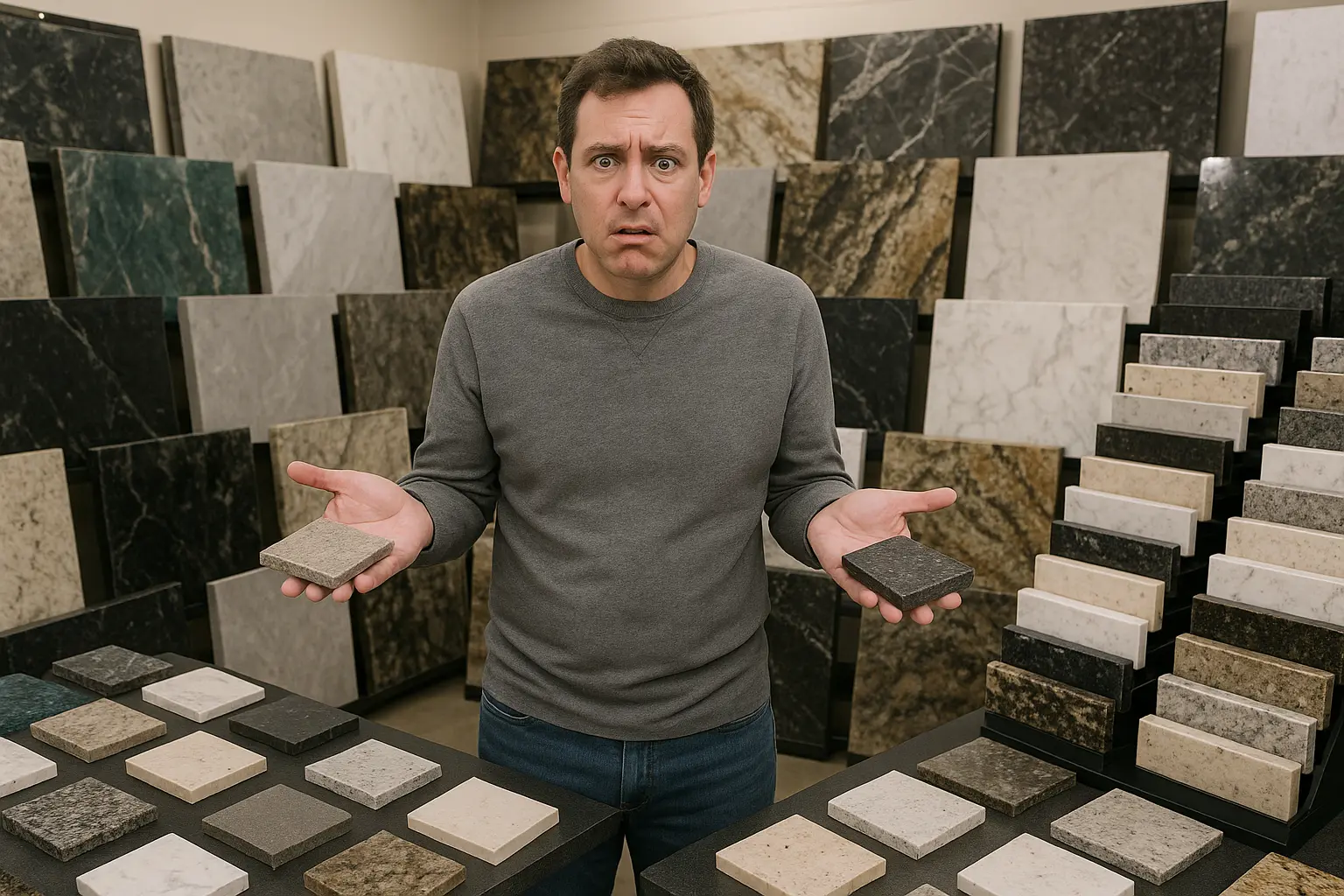
Countertops You'll Love - Our Promise
30 years of experience. Thousands of happy clients. Now it's your turn.
Ask Our AI Assistant
Get instant answers
Click to start chatting
Powered by AI
What If You Never Had to Feel This Confused?

You've been dreaming of your new kitchen for months. This should feel exciting, not terrifying.
But here you are — overwhelmed, confused, and expected to make a $10,000 decision.
There's a better way.
What if you could:
- Sit comfortably in your own home
- See your kitchen with different stone options
- Know where seams will fall
- Get advice without sales pressure
- Feel confident in your choice
Stone Concepts provides -
A countertop preview that eliminates confusion. You'll see your kitchen come to life before we fabricate anything.
You deserve certainty, not chaos.
Avoid mistakes and guesswork
Let's walk through your options — together.
Get My Free Quote
We'll help you compare materials, estimate costs, and find the perfect slab — all with expert guidance and zero pressure.
Spots are limited — hold your quote today.
Stone Concepts Blog
Explore the Stone Concepts Blog for guidance on creating your dream kitchen.
Granite vs. Quartz Countertops: Which is Best for Your Kitchen Remodel?

Marble vs Granite Countertop Installation: Which Is Right for Your Kitchen?

What to Actually Expect on Countertop Installation Day: An Hour-by-Hour Guide

What It's Like to Work With Stone Concepts
Real clients. Real results.
"Bill helped me through the most overwhelming part — picking the stone."
He knew what I needed even before I did."
"The workmanship was flawless. The step-by-step support?"
Better than any vendor we contacted."
"I didn't want to put anything on my new counters — they're that stunning."
And they saved me 30% over my local quotes."
"Bill helped us understand what fit our budget and walked us through the whole process."
It couldn't have been smoother."
Want your story to be this good?
Let's make your countertop experience simple, beautiful, and stress-free.
Frequently Asked Questions
What types of countertops do you offer?
How do I get started with my countertop project?
Do you provide countertop installation services?
How long does the process take?
Are your countertops sealed?
Can I install new countertops over my existing ones?
What maintenance is required for granite and quartz countertops?
Do you offer custom edge profiles for countertops?
What should I do to prepare for countertop installation?
How do I get a quote for my countertop project?
Ready to transform your space?
Contact us today to schedule a consultation and get started on your custom countertop project.
